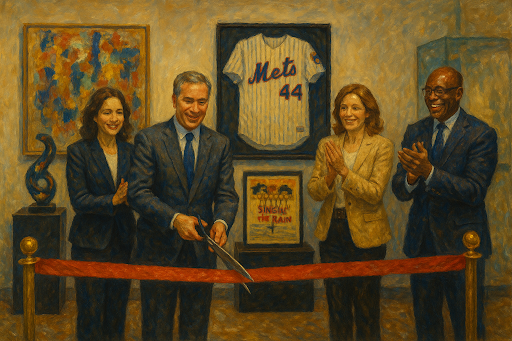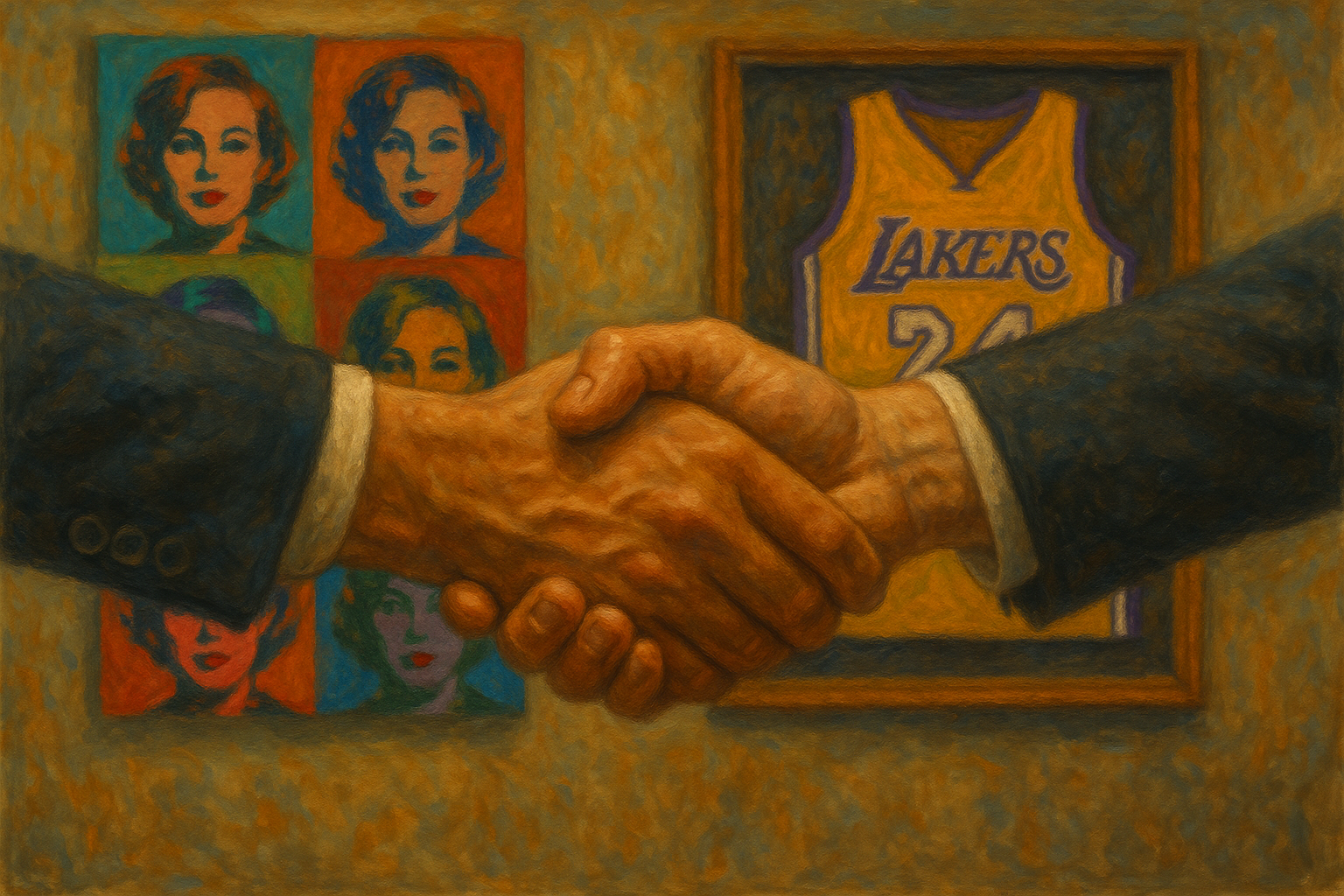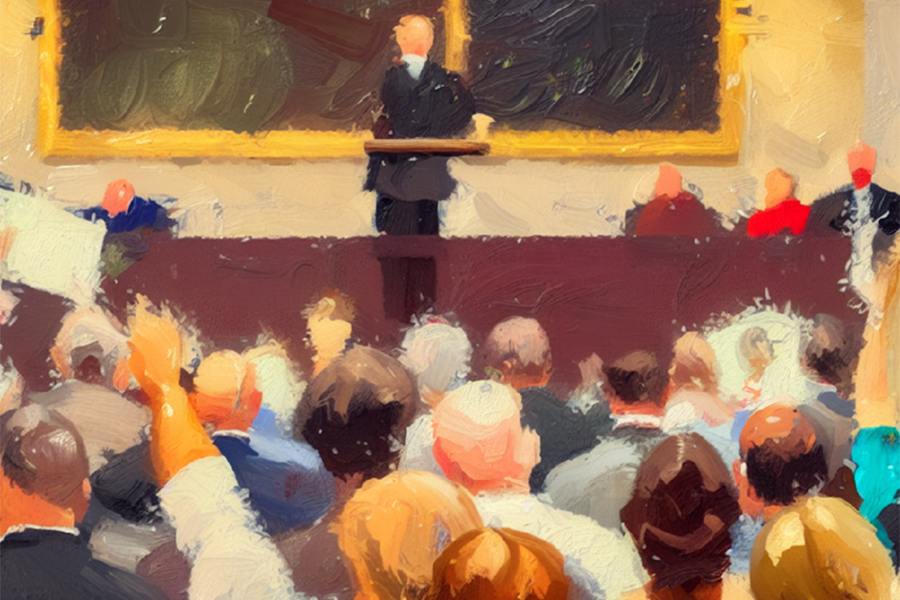Destiny Family Office works with ultra-high-net-worth collectors, offering services tailored to their investments, families, and passion assets. By understanding what’s most important to you, we can help you navigate complexity, simplify your life, and achieve peace of mind.
If you have a valuable collection you’d like to include in your financial, tax and estate planning, contact our Destiny Family Office team today. And don’t forget to self-assess your planning to date by completing our Collectibles Scorecard.
Over a lifetime, collectors — motivated by passion — amass a veritable treasure trove that brings them great pride and joy. However, eventually, they must confront the crucial question: what will happen to their collections once they’re gone?
For some, collecting is a family affair. Their heirs share their passion and will act as the new stewards of the collection, ensuring it remains in the family for generations to come. The legacy will live on. However, others will find that their families haven’t the slightest interest in their hobby; they appreciate the collector’s passion, but they don’t share it.
In such cases, a collector may quickly arrive at the realization that keeping a collection in their estate could be a misguided decision. But this collection has been their life’s work. Isn’t there any way to ensure that it leaves a legacy that will endure long after the collector is gone?
Rest assured, there is. As it turns out, passion assets can be very valuable vehicles through which a collector can exercise their philanthropic intent. Whether they sell their collections and donate the proceeds, donate the assets directly to a museum or institution, or donate the assets to a charitable vehicle, myriad options enable collectors to put their collections to noble use: supporting the causes most important to them.
Collectors should collaborate with qualified professionals to determine the most appropriate course of action for their situation. As they begin that process, they can explore some of the considerations relevant to each option below.
Sell and Donate Proceeds
One of the most straightforward ways to put passion assets to work for philanthropic purposes is to sell the assets and use the proceeds to make donations. However, this route, though simple, may not always be the most efficient.
Selling the assets would typically necessitate the incursion of capital gains taxes, so if the asset has appreciated significantly in value since the collector’s initial purchase, the tax bill could be significant. Of course, the donation would create income tax deductibility, potentially dulling the pain of the capital gains bill. Collectors and their advisors should consider the tax implications of selling their passion assets, paying close attention to their potential capital gains burden, before choosing this option.
Additionally, there are often fees associated with selling items from a collection. Auction fees may reduce the net proceeds from a sale, thereby reducing the money available for donation. In some cases, auction houses are willing to work with consignors to further their philanthropic endeavors, advertising that the proceeds from the sale will benefit a charitable organization and sometimes even contributing their fees to the cause as well. If structured properly, the auction may also enable the winning bidder to pursue some tax deductibility in these cases.
Donate Directly to a Museum or Institution
For many collectors, seeing items they once owned displayed prominently in the hallowed halls of a renowned museum is a lifelong dream. If items from their collection align with the museum’s mission, this dream can come true while also enabling efficient financial outcomes. If certain conditions are met, the collector may exercise full tax deductibility on the donation:
- The collector must have owned the item for more than a year before donating it.
- The institution must use the item in a manner relating to its purpose.
- The institution must keep the item for at least three years.
This matter of “related use” merits consultation with the appropriate advisors and the institution. When an organization uses a donated item in a manner related to its exempt purpose (i.e., an art museum displaying a painting), donors can deduct the item’s full fair market value. If an organization cannot use the item for a purpose related to its mission or if it will sell the item, the donor’s deduction is limited to the lesser of their cost basis or the fair market value. For a heavily appreciated item, this can make a significant difference.
However, it’s worth noting that there are annual limits on deductibility, even in a case of related use. The limit is 30% of adjusted gross income (AGI). If it’s not a case of related use and the donor is making the deduction based on the cost basis, the limit is 50% of AGI in a given year.
Donate to a Donor-Advised Fund or Private Foundation
Collectors may additionally consider contributing their passion assets to a donor-advised fund (DAF). Donor-advised funds allow donors to make irrevocable contributions to a fund sponsored by a 501(c)(3) public charity and receive immediate deductibility. The DAF may retain or sell those contributions, but any further appreciation occurs tax-free to the donor. Donors can then recommend grants from the DAF to support causes close to their heart.
Because donors can receive immediate deductibility without having to choose an ultimate recipient for grants concurrently, DAFs can be convenient vehicles for those who haven’t yet fully established their charitable strategy but wish to lay the groundwork for future contributions.
On the topic of deductibility, while collectors should consult with their advisors, most contributions of passion assets to DAFs won’t meet the standards of related use, meaning the income-tax deductibility would be limited to the cost basis. However, by donating heavily appreciated assets, the collector could potentially avoid incurring weighty capital gains taxes.
Some high-net-worth collectors may consider establishing a private family foundation and contributing their passion assets to it. While many of the mechanics around deductibility and capital gains taxes are similar, there are some key differences.
Donor-advised funds are credited for their operational simplicity, as the solution is relatively turnkey when donating to an established fund with existing infrastructure. Private foundations, on the other hand, require more administrative and operational attention, as responsibility for establishing and running them falls to the family and their appointees. With this additional administrative burden comes greater control over both the foundation’s investments and its grantmaking; with DAFs, this control is limited, and grants typically require approval from the DAF operator. Finally, private foundations are required to distribute 5% of the fair market value of their assets annually. No such minimum exists for DAFs, giving the donor greater flexibility in terms of timelines.
Check it out: On our Significance of Wealth podcast, the Fine Art Group’s Colleen Boyle shares a story about how one prominent guitar collector created a meaningful legacy by gifting his collection to a donor-advised fund, with proceeds ultimately supporting youth in music.
When collectors decide that the time has come to part with their treasured collectibles to support the causes most dear to them, they have numerous options at their disposal. They should work closely with their trusted advisors to assess the pros and cons of each option, with specific attention paid to their tax liabilities. Moreover, should they choose to donate assets from their collection, they must work with a qualified appraiser to obtain the necessary documentation to claim a deduction on their tax returns.
Whatever collectors choose, they can take pride in the fact that their hobby has enabled them to cement a lasting legacy and advance causes with significant personal meaning.
Destiny Family Office works with ultra-high-net-worth collectors, offering services tailored to their investments, families, and passion assets. By understanding what’s most important to you, we can help you navigate complexity, simplify your life, and achieve peace of mind.
If you have a valuable collection you’d like to include in your financial, tax and estate planning, contact our Destiny Family Office team today. And don’t forget to self-assess your planning to date by completing our Collectibles Scorecard.




